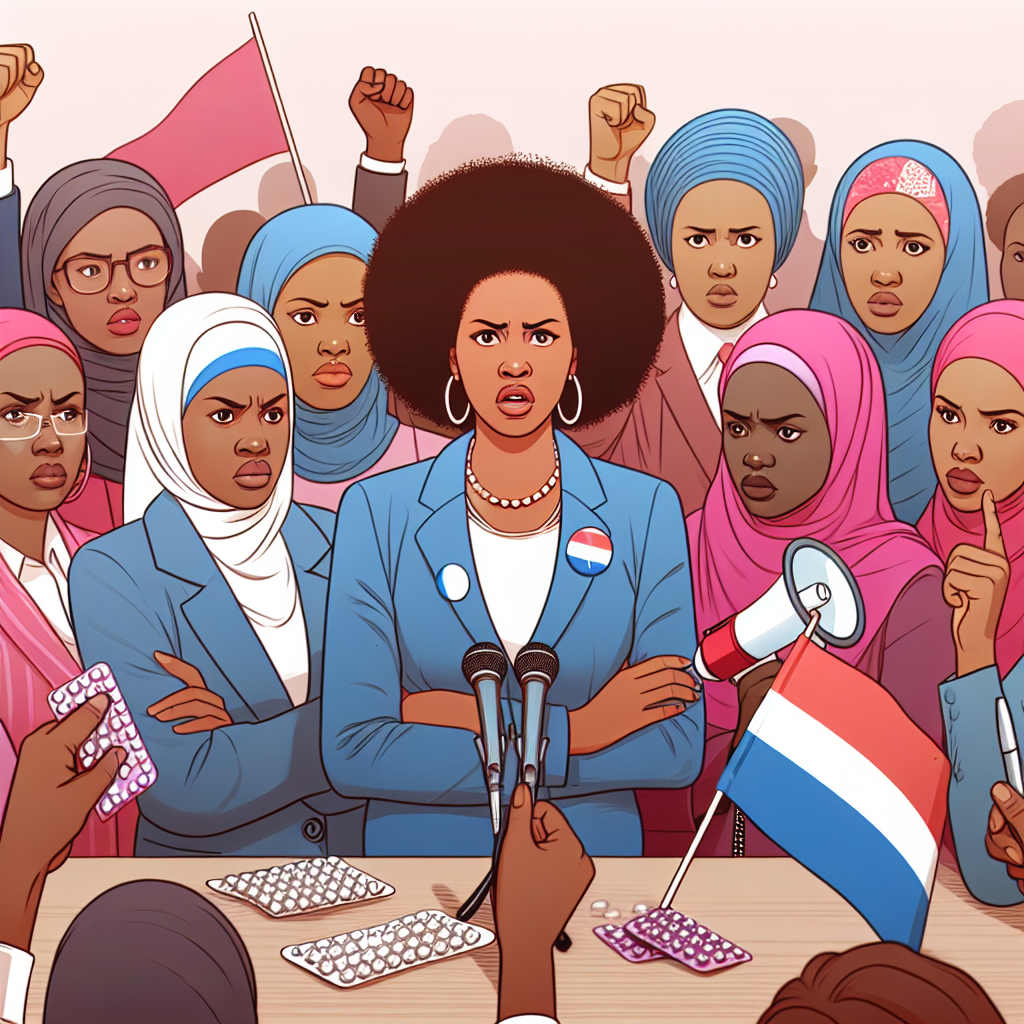The Ripple Effect: How Potential Cuts to U.S. Birth Control Funding Could Impact Women’s Health in Africa
In recent years, the global conversation around women’s health has gained significant momentum. However, the potential for funding cuts by the U.S. government under the Trump administration has raised concerns among women’s health advocates in Africa. These advocates fear that such cuts could have a profound impact on birth control accessibility and, consequently, on the overall health and well-being of women across the continent.
Understanding the Importance of U.S. Funding for Birth Control in Africa
The United States has long been a significant contributor to global health initiatives, particularly in the realm of reproductive health. U.S. funding supports a wide array of programs aimed at improving access to birth control, which is crucial for empowering women and promoting public health.
The Role of U.S. Funding in African Health Programs
- Financial Support: U.S. funding provides essential financial resources that help sustain numerous health programs across Africa.
- Training and Education: These funds are often used to train healthcare workers and educate communities about the importance of family planning and reproductive health.
- Infrastructure Development: Investments in healthcare infrastructure, such as clinics and supply chains, are often supported by U.S. aid.
The Impact of Birth Control on Women’s Health
Access to birth control is not just about preventing pregnancies; it plays a critical role in enhancing women’s health and autonomy. Here are some key benefits:
- Reduced Maternal Mortality: Birth control helps in spacing pregnancies, which can significantly reduce the risk of maternal mortality.
- Empowerment and Education: Women who have control over their reproductive health are more likely to pursue education and employment opportunities.
- Economic Growth: When women can plan their families, they contribute more effectively to the economy, leading to broader societal benefits.
The Potential Consequences of Funding Cuts
The possibility of U.S. funding cuts under the Trump administration has sparked concern among health advocates. Here are some potential consequences:
Decreased Access to Birth Control
- Supply Shortages: Reduced funding could lead to shortages of contraceptives, making it difficult for women to access the birth control they need.
- Increased Costs: With less funding, the cost of birth control could rise, putting it out of reach for many women, especially those in low-income communities.
Health Risks and Increased Maternal Mortality
- Unplanned Pregnancies: Without access to birth control, the rate of unplanned pregnancies is likely to increase, leading to higher maternal and infant mortality rates.
- Unsafe Abortions: In regions where abortion is restricted, lack of birth control can lead to an increase in unsafe abortions, posing significant health risks to women.
Socioeconomic Impacts
- Educational Setbacks: Young women who face unplanned pregnancies may be forced to leave school, limiting their future opportunities.
- Economic Strain: Families with more children than they can support may face increased financial strain, perpetuating cycles of poverty.
The Role of Women’s Health Advocates
Women’s health advocates in Africa are working tirelessly to mitigate the potential impacts of funding cuts. Their efforts include:
Advocacy and Awareness Campaigns
- Raising Awareness: Advocates are working to raise awareness about the importance of birth control and the potential consequences of funding cuts.
- Policy Advocacy: Engaging with policymakers to emphasize the need for sustained funding and support for reproductive health programs.
Community-Based Initiatives
- Grassroots Programs: Implementing community-based programs that focus on education and access to birth control.
- Partnerships: Collaborating with local and international organizations to strengthen healthcare systems and ensure continued access to reproductive health services.
The Global Responsibility
While the potential for U.S. funding cuts poses a significant challenge, it also highlights the need for a global response to support women’s health in Africa. Here are some ways the international community can help:
Diversifying Funding Sources
- International Aid: Encouraging other countries and international organizations to step up and fill the funding gap.
- Private Sector Involvement: Engaging the private sector to invest in women’s health initiatives and support sustainable development goals.
Strengthening Local Capacities
- Capacity Building: Investing in local healthcare systems to improve their ability to deliver reproductive health services independently.
- Innovation and Technology: Leveraging technology to improve access to information and services related to birth control and reproductive health.
Conclusion
The potential cuts to U.S. funding for birth control in Africa could have far-reaching consequences for women’s health and well-being. However, with the concerted efforts of women’s health advocates, policymakers, and the international community, it is possible to mitigate these impacts and continue to support the empowerment and health of women across the continent. By working together, we can ensure that every woman has the right to make informed choices about her reproductive health, leading to healthier families and stronger communities.
